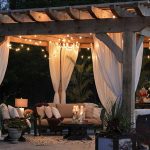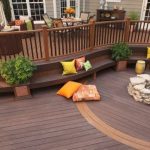Why Do Decks Collapse?
Owning a home with a deck in Calgary can be a lot of fun – you can have regular barbecues, host big backyard parties, or spend long nights chatting with friends in the warm summer air. But like any other part of a house, decks have specific guidelines for quality and endurance. When the structure fails or those conditions are not met, a collapse is likely to occur.
Deck collapses can cause immense amounts of damage and injure many people in an instant – or even lead to fatalities. Protect your guests, yourself, and your property by knowing why decks collapse, and what you can do to avoid one yourself.
How Common Are Deck Collapses?
While it’s difficult to find exact numbers for different cities, studies show that each year thousands of people are injured – sometimes in life-altering ways – in deck or railing collapses. In the five-year period between 2003-2007, for example, there were more than 33,000 injuries due to a structural failure across the USA, including a single instance where 13 people died and 57 more were injured.
There is no Calgary-specific data, but a report by the International Association of Certified Home Inspectors (InterNACHI) estimates that only 40% of existing decks in North America are completely safe.
That’s right – the majority of decks across the continent have some sort of deficiency that could turn out to be deadly. In an area of the world where inspections are strict, how is that possible?
What is the Most Common Cause of Deck Collapse?
Deck collapses are caused by five main factors, and usually occur when the deck structure separates from the house and swings away. Sometimes, only the railings will break – while less dramatic, these can also lead to serious injury if many people are leaning on them at the time.
- There’s too much weight on the deck: This is pretty self-explanatory. All horizontal structures are designed to support a certain amount of weight, and going beyond those limits can lead to a failure in the connections, joints, or load-bearing areas.
- There are inherent structural or design flaws: A deck with an interesting architectural style might look incredible, but at the cost of strength and support. Similarly, if the wrong materials are used or specific details are overlooked during construction (i.e. the wrong length of screws at the house attachment points), it’s an accident waiting to happen.
- Materials have worn out, eroded, or rotted: Most decks are wood, which is notorious for rotting or warping. Nails, screws, and brackets can rust. In the end, a deck only lasts as long as the materials it’s made of – so if a proper inspection hasn’t been done in years, that deck should be off-limits until you bring in a professional.
- Inadequate or incomplete supports and railings: Buttresses, railings, and other supports can loosen or fail over time – and often, if one is not performing properly, the additional stress is passed on to the remaining supports, causing them to fail more quickly. For railings on stairs and upper levels, this can translate to an unsuspecting fall very easily.
- The foundations are defective: Everything on the deck could be perfect, but if the foundations are defective – for example, if they have sunk at varying rates into soft ground, or the screw piles were installed incorrectly – the extra tension can lead to a total collapse.
How Do I Stop My Deck From Collapsing?
Warning Signs of Deck Collapse
First things first: if you’re worried about your deck collapsing, do not go on it until a professional contractor or inspector has a look. You could be wrong, but it’s not worth the risk.
You can look for these simple warning signs for deck collapse, including but not limited to:
- Are all your connectors there, and in good condition?
- Are the connections tight, especially to the wall of the adjacent structure?
- Are there splits, warps, or rotted areas in the wood?
- Are the supports properly placed, with no gaps or breaks?
- Do you notice excessive wobble in any sections that should be solid?
If any of those apply, you can get peace of mind by having a deck inspection done. If there is an issue, it may be an easy fix or require a full deck rebuild, depending on the context of the problem.
Why Decks Creak
All wooden decks will creak to some extent, as the wood gets affected by the heat, cold, and ambient moisture. All of these can cause the wood to bend slightly or rub against nails or other boards, leading to those persistent creaking noises.
If it is happening often, though, it could be a sign of loose boards, excessive movement in the supports or beams, or warping planks. If you’re handy enough, you can tighten up any screws or nails that may be out of place, but again – if you’re unsure of its sturdiness, there’s no harm in calling a professional to have a look. It’s better to be safe than to be another statistic of a deck collapse.
Professional Deck Builders in Calgary
When it comes to decks in Alberta, we’ve done it all – we know the best practices and materials to withstand the hail of Harvest Hills, the snow of Silverado, or the hot evening sunshine of Springbank. When you want to make sure your composite deck or wooden deck is safe for you, your family, and your guests, look no further than Maritime West Construction. With multiple HomeStar “Best of” awards and 20+ years of experience, we’ve been putting Calgary homeowners at ease for a long time. We look forward to seeing what we can do for you!





